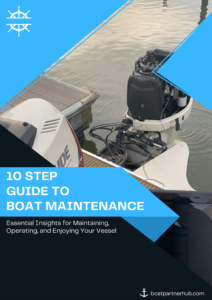Blog
Do I Need A License To Operate A Sailboat?

Sailing Without Limits: Understanding Sailboat Licensing and Certification Requirements
Sailing offers a serene and captivating way to explore the waters, and many people are drawn to the idea of sailing their own boat. However, before setting sail, one common question that arises is whether a license is required to operate a sailboat. In this article, we will explore the regulations surrounding sailboat operation and whether you need a license to embark on your sailing adventures.
1. Licenses vs. Certifications
First, it’s essential to understand the distinction between licenses and certifications. While the terms are often used interchangeably, they have different meanings in the context of boating.
- Boating License: A boating license is a government-issued document that grants the holder permission to operate a boat on public waterways. However, in most regions, sailboats of a certain size do not require a license, as we will discuss in the following sections.
- Boating Certification: Boating certifications are typically obtained through boating education courses, which vary in content and requirements depending on the region. These courses provide valuable knowledge and skills for safe boating but may not be mandatory for all sailboat operators.
2. License Requirements by Region
The regulations regarding boating licenses vary from country to country and even within states or provinces. In many regions, licenses are not required for operating a recreational sailboat, especially for private, non-commercial use.
3. Sailboat Size Limitations
In most areas, the need for a boating license is often determined by the size and power of the boat rather than the type. For example, small sailboats under a specific length, typically ranging from 12 to 26 feet, may not require a license. However, regulations can vary, and it’s essential to check with local boating authorities for specific guidelines.
4. Age Restrictions
Some regions may have age restrictions for operating sailboats without a license. In many cases, young sailors may be allowed to operate sailboats without a license but with certain supervision or restrictions on boat size and horsepower.
5. Boating Education Courses
While a license may not be mandatory for sailboat operation, taking a boating education course is highly recommended. These courses provide valuable knowledge on boating safety, navigation, and seamanship, enhancing your sailing experience and promoting responsible boating practices.
6. Chartering and Rental Regulations
If you plan to charter or rent a sailboat, the requirements may differ. Charter companies or boat rental providers may have their own policies, which may include age restrictions, minimum experience levels, or a requirement to hold a certification.
7. International Waters
When sailing in international waters or in foreign countries, it’s essential to research and comply with the specific boating regulations of those regions. Some countries may require an International Certificate of Competence (ICC) or similar documentation to operate a sailboat within their jurisdiction.
8. Insurance Considerations
While not directly related to licensing, having appropriate boat insurance is crucial for sailboat owners. Insurance requirements can vary based on boat size, location, and intended usage, so it’s advisable to consult with an insurance provider to determine the appropriate coverage for your sailboat.
Conclusion
In conclusion, the need for a license to operate a sailboat depends on various factors, including boat size, age restrictions, and local regulations. In many regions, recreational sailboats of certain sizes may not require a license for private, non-commercial use. However, even if a license is not mandatory, obtaining a boating certification through an education course is highly recommended to ensure safe and responsible sailing practices. Before setting sail, it’s essential to research the specific boating regulations of your region and any areas you plan to navigate to stay compliant with local laws and enjoy your sailing adventures to the fullest.
FAQs
- Do I need a license to operate a sailboat with an engine? The requirement for a license may depend on the boat’s size and whether it has an engine. Smaller sailboats with engines may not require a license in many regions.
- Can I sail a large sailboat without a license if it’s for personal use? Licensing requirements are often determined by boat size. Large sailboats used for personal use may not require a license in some areas, but it’s essential to verify local regulations.
- Will a boating certification obtained in one country be valid in another country? Boating certifications may not be universally recognized. When sailing in foreign countries, check if an International Certificate of Competence (ICC) or other documentation is required.
- Are there different boating education courses for sailboats and powerboats? Yes, some boating education courses may be specific to sailboats or powerboats, while others may cover both types of vessels.
- Is a boating education course mandatory for all sailboat operators? The requirement for boating education courses varies by region. In some areas, it may be mandatory for young sailors or operators of larger sailboats.


